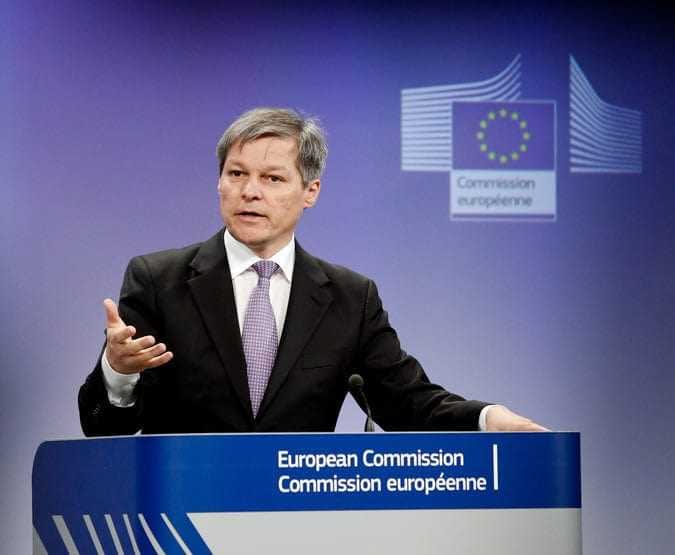
Amid public and political outcry against the move, European Union Agriculture Commissioner Dacian Cioloș yesterday froze his plan to ban refillable olive oil bottles from restaurant tables. Instead, he pledged to involve himself directly in new talks on protecting consumers from olive oil fraud.
Below are excerpts from yesterday’s announcement, in which Cioloș explained his rationale for the measure and vision for the future of the sector.
Why the turnaround?
Since last Friday, and this is why I’m speaking to you today, there have been a number of quite strong positions adopted against this proposed regulation, in particular from consumer countries.
This is a measure which is intended to help consumers, inform them properly and make sure they are not mislead but it can’t attract, at the moment, broad consumer support and that is crucial in my view. And so I have decided to withdraw this proposal.
What will happen now?
I intend in coming days to hold meetings with consumer representatives, representatives of restaurants, and producers as well, to see how we can better meet these objectives and to find the best instruments which would be acceptable broadly and not create bureaucracy or any doubts about the underlying objective.
I wanted to come here today to make this very clear to you, to demonstrate that I’ve been very alive to the current debate in the press.
…Together with the restaurants we’ll find the best way to provide better information to consumers about what they’re eating and to avoid any cheating.
If there really is a problem, why are you withdrawing the plan?
I concluded, following the debate in the press these last days, that maybe our effort and the effort of the sector was not sufficient (in regard to) discussion with the consumer member states.
…For me it has the same level of importance what the consumer member states think about the future of the olive oil sector (as) the producer ones.
Isn’t this a political issue as well as a consumer one, with the southern countries in favor and those in the north against it?
Here we work with very technical arguments in the interests of all the consumers in the European Union…to debate and define together the better way and not to force a decision because some member states are in favor and others are against.
If most fraud takes place before bottling, what was the logic behind such a law?
From the outset my objective, and also looking at the economic survival of the olive oil sector, was to boost quality, not in an artificial way of supporting olive oil production if it’s not recognized and accepted by the consumer.
Now we do have certain cases in certain restaurants where you will find a bottle labeled with a certain type of olive oil but once the bottle is empty then it’s topped up with other oil. It’s still got the same label but there’s no way of being sure what’s put into the bottle is in fact that type of olive oil.
So to avoid this type of situation we came up with this idea. To make sure, first of all, that the customer isn’t defrauded.
…But it’s also to stimulate producers to make an effort to label their oils and focus on producing quality oils and not just low or medium quality at low price.
We want diversity on the European market but we want producers to be able to live from the price of their product and in this case the consumer has to be sure that he or she gets what they’re really paying for. And that was the original principal behind our proposal and not any particular lobby pushing us.
Why not treat wine and other products the same or leave it up to consumers to choose which restaurants they go to?
What we were looking at above all were the links in the chain where there is a risk of fraud or some sort of cheating and we’ve got characteristics for the quality of the oil. We didn’t have the technical, analytical capacity in the past to do this so you’ll see that there’s several actions in the plan, restaurants are just one part of it.
Why are we not making the same proposal for wine? Well I think it’s rare to find an open bottle on the table when I go to a restaurant. Normally I order a bottle of wine and I drink it during a meal. Whereas in the case of olive oil you’ve often got a bottle on the table, it’s there when you arrive and it’s open, because you’re not going to drink a whole bottle of olive oil.
…It’s just one measure, but as I’m saying we need more measures upstream of this, and looking at producers, bottlers and so forth and we’re looking at this with no intention of adding red tape. We want to do the minimum to make sure we get the maximum level of confidence for consumers.
(Cioloş was at some times speaking in French and at other times in English.)








